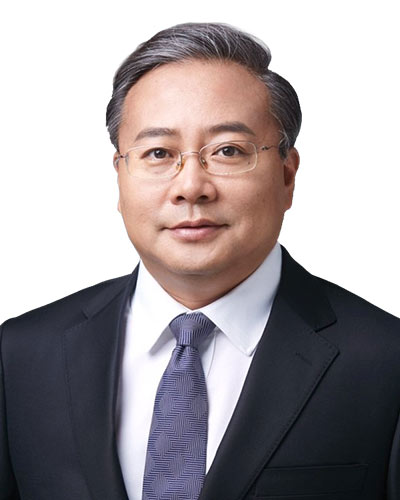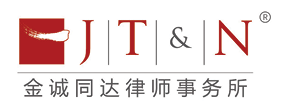In the first half of 2022, China’s economy grew 2.5% year-on-year. To prevent and control the pandemic, some areas took containment measures that greatly affected economic activity in the second quarter. However, since the third quarter, as the pandemic was effectively controlled, the impact of macro-support policies gradually appeared and the economy improved.
Looking back on the past 10 months, China has highlighted three obvious main lines in its tax policy. In terms of turnover tax, the authorities increased tax reduction or refund for the manufacturing industry and micro, small and medium-sized enterprises (MSMEs) greatly affected by the pandemic and energy crisis with a sharp drop in value-added tax (VAT) revenue and rise in export rebate.
In terms of direct taxes, the authorities reinforced collection and management of tax on high-income groups, for a sharp year-on-year rise in revenue from individual income tax. Regional preferential tax policies were also made clearer and more open.
Correspondingly, in terms of supervision, the tax authorities are gradually realising transformation of tax management from invoices to data. The reform of electronic invoicing and extensive application of taxation big data make supervision more accurate and solid.
Tax reduction or refund
Advance payment of VAT by all branches of air and railway transport enterprises was suspended for 2022. VAT paid in advance from February 2022 to the date of the document will be refunded. In the same period, taxpayers were also exempted from VAT on income obtained by providing public transport services.

Senior Partner
Jincheng Tongda & Neal in Beijing
Tel: +86 10 5706 8050
Email: wangzhaohui@jtn.com
Additionally, producers and consumers of service industries can enjoy an additional VAT rebate until 31 December 2022. Deferred VAT payment for MSMEs in the manufacturing industry is extended for another six months from the initial three months. From 1 April to the end of the year, small-scale taxpayers are also exempt from VAT.
From 1 April 2022, tax authorities increased policy support for an end-of-period VAT credit refund for small and micro businesses and manufacturing, plus other related industries including: scientific research and technology service industry; power, heat, gas, and water production and supply industries; software and information technology service industry; ecological protection and environmental governance industry; and transportation, warehousing and postal industries.
The authorities also expanded the scope of refunding incremental VAT credit for the advanced manufacturing industry to eligible businesses (including privately or individually owned businesses) in full and on a monthly basis, refunding outstanding VAT credit in one lump sum.
The above-mentioned tax reduction and refund policies on turnover tax directly provide cash flow for enterprises, facilitating acceleration of technological transformation and equipment renewal, effectively boosting the confidence of market participants and promoting development of enterprises.
However, the authors note that in the process of applying for tax reduction or refund on turnover tax, many enterprises have concealed sales revenue, reduced output VAT, and submitted false tax returns, hence attracting attention from and causing inspection by the tax authorities, causing enterprises to be charged with tax makeup, fines, overdue fines and even criminal liabilities.
Strengthening supervision
In 2019, China revised and implemented the Individual Income Tax Law by introducing anti-tax avoidance clauses for the first time. This law provides a clear legal basis for tax authorities to regulate the tax avoidance behaviour of individuals (especially high-income ones) from aspects of independent transaction principles, rules for controlled foreign enterprises, and general anti-tax avoidance rules.

Senior Partner
Jincheng Tongda & Neal in Beijing
Tel:+86 10 5706 8050
Email: chenyingchuan@jtnfa.com
On 21 December 2021, the State Council’s report on rectification of problems found, in audit of the central budget’s implementation and other financial revenues and expenditures in 2020, issues in tax return policy, individual tax payment of high-income groups, tax avoidance and evasion of individual equity transfer, etc.
The report proposed levying tax on sole proprietorship and partnership enterprises that meet certain conditions on an actual basis, and strengthening supervision over tax avoidance and evasion of individual equity transfer. Since 1 January this year, sole proprietorship or partnership enterprises of equity investment are subject to taxation on an actual basis.
Before the end of 2021, taking advantage of places or areas with more preferential tax policies, fiscal return and taxation policies on a deemed basis in China has become a widely adopted means of tax avoidance, and it is not uncommon to make use of the asymmetric tax information between different countries to carry out so-called cross-border tax planning. However, in 2022, simple and stringent tax avoidance measures (under individual income tax) will be implemented.
Clearer, more open policies
Since the release of the Overall Plan for the Construction of Hainan Free Trade Port (Hainan Plan) in June 2020, various departments successively issued a number of policies in 2021, with further specific provisions on implementation of preferential policies such as enterprise income tax, individual income tax, tariff and foreign investment access involved in the plan.
On 27 September, the relevant departments jointly issued the Supplementary Announcement on Issues Related to the Substantive Operation of Enterprises in Industries Encouraged by Hainan Free Trade Port, hoping to stabilise market expectations, not only promoting high-quality development of market participants in the free trade port, but also preventing shell companies from enjoying preferential tax policies in violation of regulations, thus preventing industrial and systemic taxation risks.
The supplementary announcement clarifies enterprises or entities that hold posts or employ high-end and urgently needed talent under the preferential policies on individual income tax in the free trade port, as specified in the Interim Measures of List Management for High-end Talents and Urgently-needed Talent.
The supplementary announcement further enhances judgement standards of the four elements of substantive operation in the Hainan free-trade zone, namely production and operations, personnel, accounts, and assets. Negative provisions to substantive operation were also added, including situations where the enterprises do not have production and operation functions, the registered address is inconsistent with the actual business address, or the business address cannot be contacted.
Clarifying the follow-up regulatory requirements, the supplementary announcement optimises the management mode for market participants with the substantive operation to enjoy preferential policies of the free trade zone, while establishing a working mechanism for joint verification of substantive operation and dispute resolution. This strengthens joint supervision by departments, risk prevention and control, and protects the rights and interests of legal market participants.
Outlook
The authors believe that in the fourth quarter of 2022 and upcoming 2023, China’s tax policy will continue to develop in the following aspects:
Tax management through data. Tax authorities are developing phase IV of the golden tax system (intelligent tax), which will be completed by the end of this year. In future, the tax authorities will make full use of modern information technologies such as big data and cloud computing to realise the precise supervision transformation from tax management through invoices to tax management through data.
Tax policies related to double carbon target. China announced it would take the shortest time in history to achieve carbon peak by 2030 and carbon neutrality by 2060. Corresponding to these targets, the authors believe that tax policies related to environmental protection, use of new and clean energy, emission reduction and carbon trading will become new priorities.
Continuation of tax reduction and refund for manufacturing industry and MSMEs. Tax and fee cuts will always be the main tone of China’s fiscal and taxation policies, including upgrading and supporting the manufacturing industry, tax reduction for MSMEs, and large-scale VAT credit refund that has been implemented and will continue, and increasing the additional deduction of research and development expenses related to enterprise innovation.
Continuing to strengthen tax inspection in areas with high incidence of taxation violations. While further optimising the taxation environment for doing business, the tax authorities will rely on precise tax supervision to increase the spot-checking ratio of random inspection and public release for industries, regions and people with frequent tax evasion problems as required, and continue strengthening tax inspection.

JINCHENG TONGDA & NEAL (JT&N)
10/F, China World Tower A
No. 1 Jianguo Menwai Avenue,
Chaoyang District
Beijing 100004, China
Tel: +86 10 5706 8585
Email:beijing@jtn.com































